We’ve seen several airlines make major changes to their fleet plans in recent months, and I can’t help but pose the question of whether airlines are acting a bit irrationally, and oscillating between extremes.
In this post:
The shifting attitude among airline leadership
Up until the start of the pandemic, all too many airline executives acted as if the only way was up. I couldn’t make sense of it at the time, and I can’t make sense of it now. Just to give a few examples that span different parts of the industry:
- American Airlines CEO Doug Parker famously stated that the airline would never lose money again
- Etihad Airways ordered new planes as if there was no tomorrow, even though the airline was losing billions of dollars; even pre-pandemic, the airline was already trying to cancel many of these orders
- The major US airlines kept devaluing their frequent flyer programs, expecting more from their customers while offering less
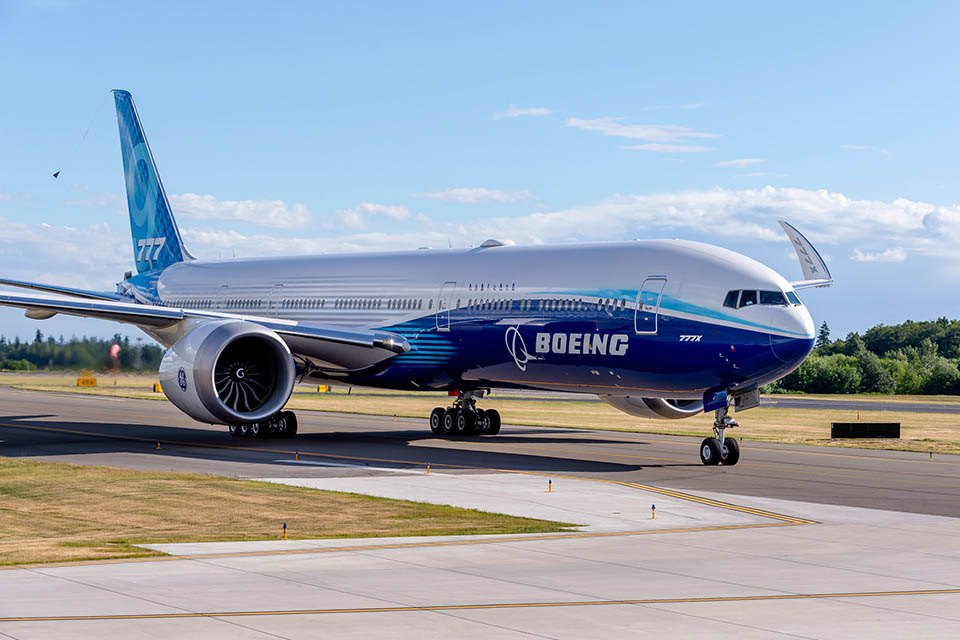 Etihad had ordered hundreds of new planes, including the 777X
Etihad had ordered hundreds of new planes, including the 777X
Suffice to say that in general these attitudes have changed, and the pandemic has been a great reset for the industry. Most airline executives expect it will take years for a full recovery, and just this week Lufthansa CEO Carsten Spohr questioned whether business travel would ever recover to pre-pandemic levels.
Are airlines now short-sighted with fleet planning?
I can’t help but step back for a moment and look at how attitudes in the industry have shifted:
- Remember the mid-2000s, before the A380 entered service, when most people assumed that this would be the future of aviation, given how global demand for air travel keeps growing?
- Fast forward just over a decade, and we’re seeing A380 production end, we’re seeing airlines retire the A380, and we’re even seeing airlines cancel their 777X orders, claiming that the plane offers way too much capacity
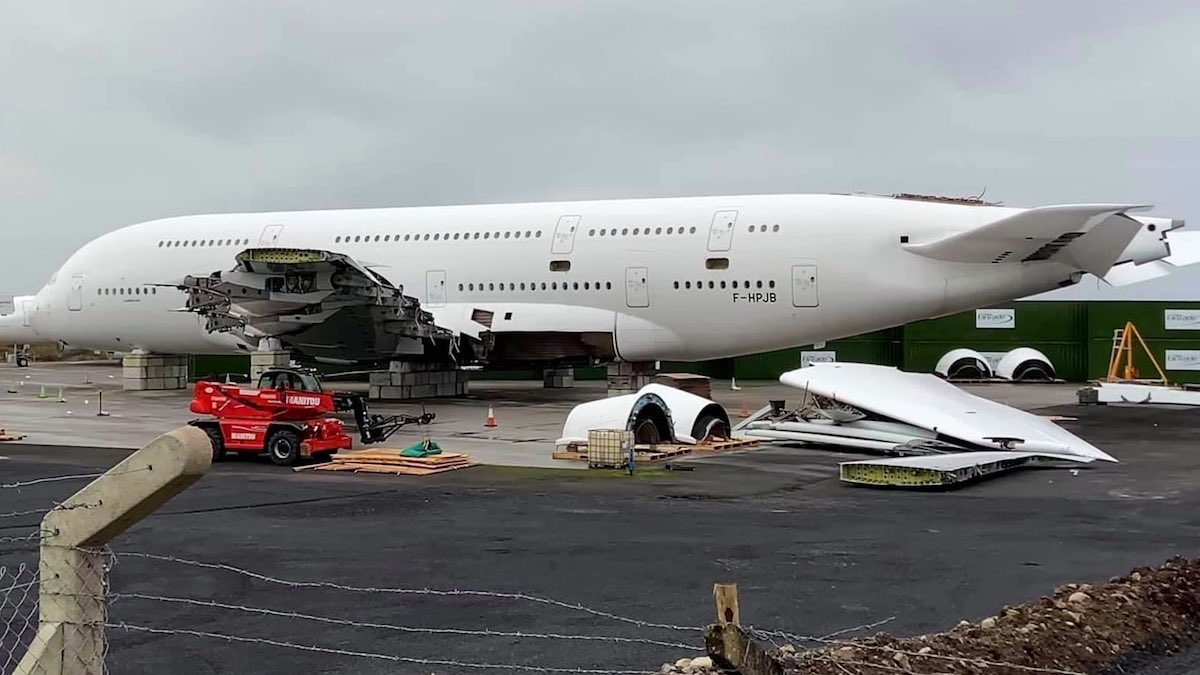 Air France became the first airline to retire all of its A380s
Air France became the first airline to retire all of its A380s
Heck, this is even the case at Emirates, which is by far the world’s biggest A380 customer, and the biggest fan of the plane. The airline plans to fly A380s through the mid-2030s, and eventually plans to replace them with 777Xs. However, the airline keeps trying to reduce its 777X order, claiming the plane is too big.
I understand the thinking of airlines in general:
- Aircraft technology has improved significantly, as we’re now seeing smaller, longer range, and more fuel efficient aircraft than ever before, ranging from the A321XLR to the 787 & A350
- This allows airlines to operate point-to-point routes that simply wouldn’t have previously been economical, and in general allows airlines to maximize yields, by not having to dump too much capacity in markets
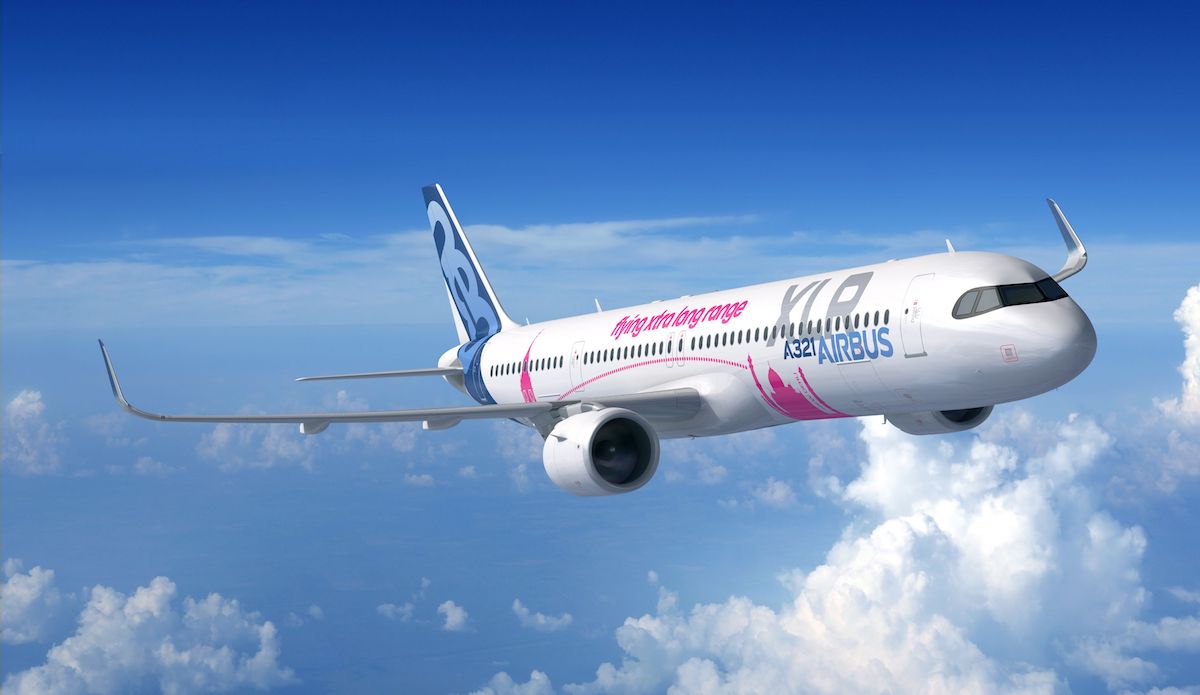 The A321XLR will enter service in 2023, and is an incredible plane
The A321XLR will enter service in 2023, and is an incredible plane
At the same time:
- Pandemic aside, the demand for global air travel keeps growing, and that’s a trend that will continue over the coming decades
- Airports keep getting more congested, and in general we’re not seeing much airport growth in many parts of the world, largely over environmental concerns
- While the A321XLR is an incredible plane, it’s not great for cargo, which can also be extremely profitable for airlines
- While not all routes need a lot of capacity, most major airlines have some markets where there’s a lot of demand, be it New York to Frankfurt (for Lufthansa), London to Doha (for Qatar Airways), New York to Tokyo (for All Nippon Airways)
- While point-to-point routes are great, the reality is that the major network airlines aren’t fundamentally adjusting their long-term business models, which is to say that the hub-and-spoke model is still very much alive, and that plays into having big planes operating prime routes
- Is there a point at which consumers simply prefer bigger planes, whether it’s avoiding narrow body planes for long haul routes, wanting to fly planes that have first class, etc.?
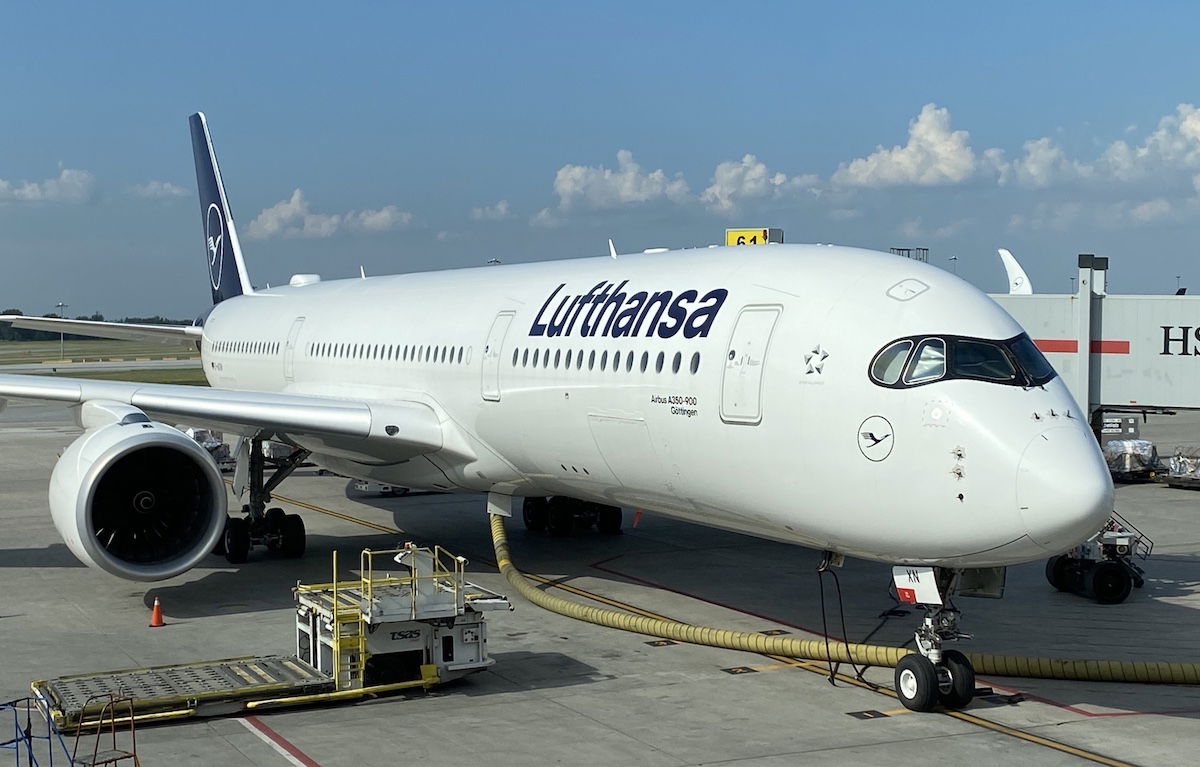 Could the A350 be Lufthansa’s largest aircraft in the future?
Could the A350 be Lufthansa’s largest aircraft in the future?
My comments here aren’t really targeted at any one particular airline. However, if I had to give a few examples, I suppose I have the following questions, especially looking forward about a decade:
- Does Lufthansa really not think it will need 20 777Xs as flagship aircraft, once 747-8s are retired?
- Does Emirates really not plan to at least have a 1:1 replacement of 777Xs for A380s? Pre-pandemic the airline operated 10 daily A380 flights to London-area airports, so what’s next, 20 daily 787s?
I suppose airlines might be thinking “well, we can always order 777Xs in the future if we need to,” but this also gets at the extreme oscillation I’m referring to, between planning for the future as if nothing can go wrong, and then taking a doom-and-gloom strategy and acting as if nothing can go right.
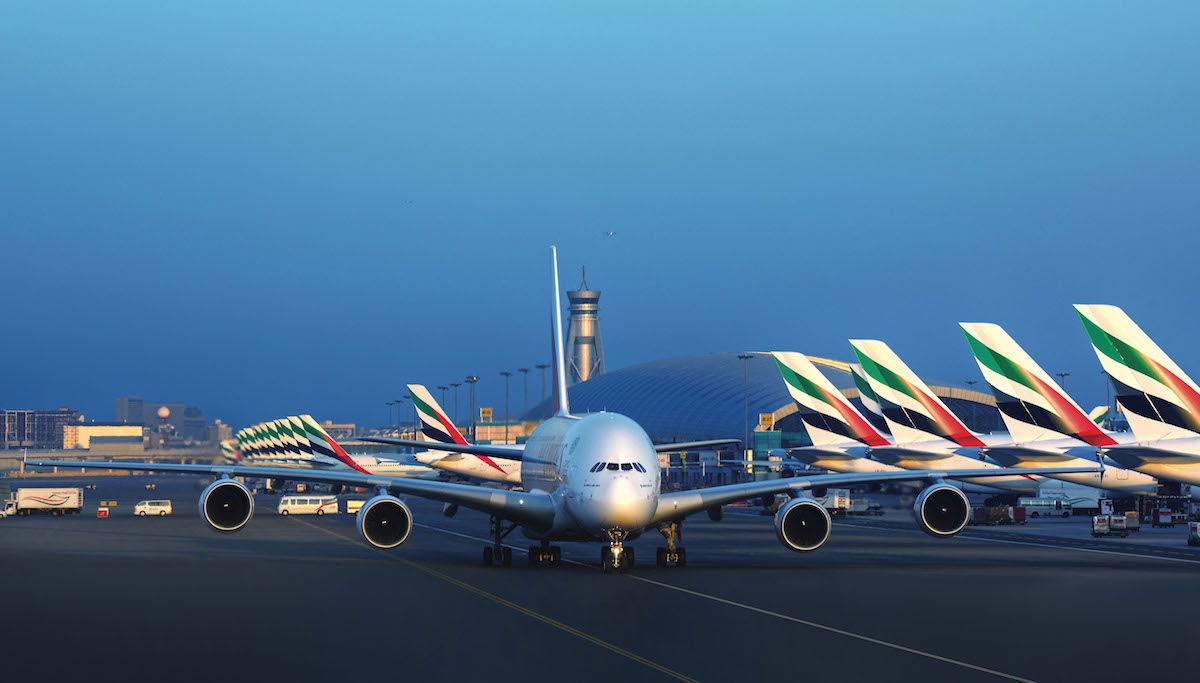 What will Emirates look like in a post-A380 era?
What will Emirates look like in a post-A380 era?
Bottom line
It’s fascinating to see the shift in thinking among airline executives when it comes to future aircraft orders. Pandemic aside, the global demand for air travel keeps growing, while long haul planes keep getting smaller.
While I can appreciate that this largely comes down to the emergence of smaller, more efficient, and longer range aircraft, I still can’t help but feel like this might all be a bit short-sighted, as we see airlines essentially suggesting that a 777 is simply way too big nowadays.
Call me optimistic, but I think the airline industry will recover fully, and I also think we’ll get to the point where we see the 777X become a popular plane. Yes, both the 787 and A350 are amazing aircraft, but at a minimum I think there’s a market for the 777X being a flagship aircraft for a lot more airlines.
What do you make of the huge change in direction among airlines with future fleet plans? Is this a knee-jerk reaction to the pandemic, or is there simply no market (even a decade down the road) for anything bigger than a 787 or A350?
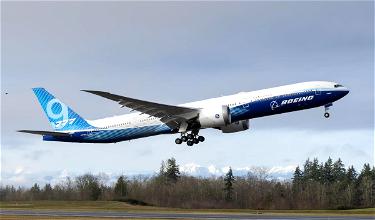

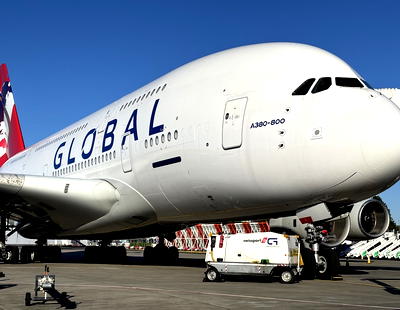
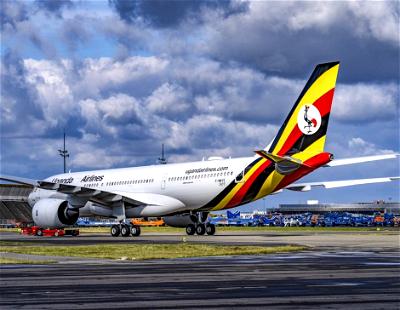
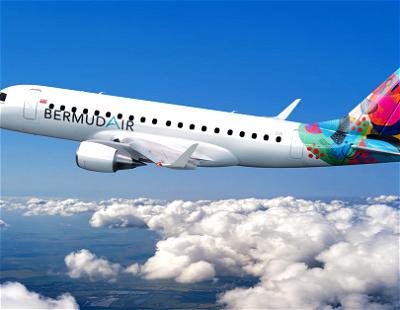
100% too short sighted. It’s a cycle just like the markets or pretty much anything else — it’s down but will make up ground and grow even more. If you think population will decline and people are going to simply cease to travel/move about then I’m sorry but you’re wrong based on the history of human existence. There’s a huge amount of pent up demand and once you open the flood gates just watch. You...
100% too short sighted. It’s a cycle just like the markets or pretty much anything else — it’s down but will make up ground and grow even more. If you think population will decline and people are going to simply cease to travel/move about then I’m sorry but you’re wrong based on the history of human existence. There’s a huge amount of pent up demand and once you open the flood gates just watch. You see it in domestic routes for months. I got on a UA flight SAT-IAD completely packed on a Wednesday. Not a single seat left. This isn’t exactly a hot route either. Covid cases are rapidly dropping and vaccinations are above 1.5 million a day just in the US.
@Azamaraal
Setting to one side my suspicion that you are paid by Boeing to slag off Airbus (so frequently do you do that), besides the obvious one*, I can’t think of any area in life where even an extra cm or so of space is so very welcome.
The fact is, rephrasing what you have written, the Airbus has more personal space for each passenger than the Boeing. Doesn’t matter how much you seek...
@Azamaraal
Setting to one side my suspicion that you are paid by Boeing to slag off Airbus (so frequently do you do that), besides the obvious one*, I can’t think of any area in life where even an extra cm or so of space is so very welcome.
The fact is, rephrasing what you have written, the Airbus has more personal space for each passenger than the Boeing. Doesn’t matter how much you seek to downplay that: that’s pretty important.
* I was thinking of tv screens. Probably.
I read an engineering study that shows the average width of an A320 seat is less than 0.3 inch wider than 737. The fuselage is only 6 inches wider for 6 seats plus aisle.
Widest seats are on C Series Bombardier - er A220. 18 inches
Overall, I agree that international travel will take years to recover to pre-pandemic levels if at all. Technology has made a majority of business travel redundant and this will disproportionately impact traditional legacy and network carriers.
Most legacy carriers supported their bloated cost structures by creating an unsustainable business model of charging exhorbidant fares to corporate customers.
That market has collapsed structurally and the leisure market cannot support these inflated costs.
And...
Overall, I agree that international travel will take years to recover to pre-pandemic levels if at all. Technology has made a majority of business travel redundant and this will disproportionately impact traditional legacy and network carriers.
Most legacy carriers supported their bloated cost structures by creating an unsustainable business model of charging exhorbidant fares to corporate customers.
That market has collapsed structurally and the leisure market cannot support these inflated costs.
And whether we like it or not, most people would prefer to fly point to point with lesser comforts versus transiting through a hub airport just to fly an ornate A380. Hence the move to adjust aircraft orders is not wrong as it gives airlines far more flexibility to align supply with demand- they can simply add another frequency if required. Slot restrictions will ease as demand goes down and traffic scatters to a larger number of smaller airports.
While business class cabins on an A321 xlr won’t be as luxurious vs those on a 777x, the economy seats will be identical perhaps even a tad roomier considering the fuselage of the A321 family that gaurantees an 18 inch width irrespective of the configuration. And it is the economy cabins that will become the mainstay for most if not all larger carriers.
Lufthansa therefore is not wrong in adapting their fleet orders as the larger aircraft’s in their fleet had large premium cabins that will be impossible to fill. And more importantly they will have to compete with the likes of JetBlue who offer a vastly superior product with a much lower cost structure.
Even carriers like Emirates that are better placed in terms of cost structures are also responding to this trend. Among the Western legacy carriers, I believe Delta has been the most forward in identifying this trend choosing to keep smaller business class cabins on their flagship A359s vs United which has gone for ultra premium heavy configurations.
We are all looking at this through the prism of the pandemic. Fleet renewal is not something that is done overnight - it is planned years in advance. I think what the pandemic has done is accelerate a trend that was already happening - namely to get smaller, more efficient, less costly aircraft. By doing that, the airlines become more flexible to changes in the market - even those changes beyond their control.
...and then you have Indian carriers.
The writing was on the wall for the 747 and A380 long before the pandemic. 4 engine planes will never compete with twins for efficiency. The demand for point to point and increased frequency on busy routes further reinforces the need for smaller fuel-efficient aircraft over the jumbos. The 777X has a future for sure, but even without the pandemic, I don't think it would ever be as popular as Boeing had originally hoped for....
The writing was on the wall for the 747 and A380 long before the pandemic. 4 engine planes will never compete with twins for efficiency. The demand for point to point and increased frequency on busy routes further reinforces the need for smaller fuel-efficient aircraft over the jumbos. The 777X has a future for sure, but even without the pandemic, I don't think it would ever be as popular as Boeing had originally hoped for.
I'm still optimistic that travel will mostly recover within the next 12-24 months, but it will be more leisure heavy. Airlines will have to look to reconfigured aircraft with less J/F and more Y/PE as they won't have nearly as many people willing to pay $5-7 for a lie-flat seat.
There was an incredible amount of controversy when Boeing was working on their Super Jumbo at the same time as Europe was flooding Airbus with free money to get the A380 into the air. Boeing wisely (?) chose not to compete in that market by taking the route of smaller more efficient point-to-point wide bodies (Dreamliner). Unfortunately Airbus continued with the A380 and many airlines went down that route - which actually harmed the Dreamliner...
There was an incredible amount of controversy when Boeing was working on their Super Jumbo at the same time as Europe was flooding Airbus with free money to get the A380 into the air. Boeing wisely (?) chose not to compete in that market by taking the route of smaller more efficient point-to-point wide bodies (Dreamliner). Unfortunately Airbus continued with the A380 and many airlines went down that route - which actually harmed the Dreamliner sales at the beginning specially given the manufacturing delays.
Being second in the smaller wide-body or narrow body market also gave Airbus the opportunity to adjust their design to make it slightly better in some areas. For example, the A320 is just slightly wider (6") than the 737 to make it more competitive with little loss in functionality or efficiency. They looked at the 787 and noted that 17" seat width was a bit narrow so made the A350 slightly wider (total 5").
In retrospect the A380 was a bad decision even though it does seem to give a special ride when compared with smaller aircraft. Such a total waste in airport and runway infrastructure around the globe that won't be used in the near future. And all the millions that airlines other than EK lost trying to compete could have been better spent on many things.
With everyone reducing capacity at the same time and cancelling orders for the 777X I predict that within 5 years there will be incredible competition for available seats and that reward systems will probably fade because of the lack of availability. As an example, I am trying to find J space at the end of January 2022 from YVR to SCL and there is nothing available as an award. With some of the very good early results of vaccination efficiency being reported it is possible that personal travel will recover within the year to levels that competition for seats will become difficult. A sort of good news bad news scenario.
@ Jay
Yes, but In my opinion 380 type aircraft do not solve the problem of too few runways. The larger the aircraft the more separation there needs to be, especially if the following aircraft is a 737 or something smaller. You practically shut down the airport.
I can see a not too distant future where demand sky rockets again, these new airports don't get built fast enough, skies are even more congested, someone engineers 10% more efficient A380 engines, and all of a sudden there's A380 demand because the A350s and 787s aren't cutting it.
"Is there a point at which consumers simply prefer bigger planes, whether it’s avoiding narrow body planes for long haul routes, wanting to fly planes that have first class, etc.?"
The vast majority of passengers have no clue what type of plane they are flying on and the first they know is often when they board the aircraft and see a sign such as it being listed on the emergency instructions.
They know they want...
"Is there a point at which consumers simply prefer bigger planes, whether it’s avoiding narrow body planes for long haul routes, wanting to fly planes that have first class, etc.?"
The vast majority of passengers have no clue what type of plane they are flying on and the first they know is often when they board the aircraft and see a sign such as it being listed on the emergency instructions.
They know they want to fly from A to B then select an airline and cabin based on the price they are willing to pay. Anything else is extraneous to that.
@ The Original Donna
My understanding is that business travel pays the way. Business travel could be in Business or economy, by the way.
A robust recovery in numbers without the "must travel these particular days, must be easily changeable, whatever the cost" might fill seats but will not bring in the revenue.
Pre-pandemic I read that 93% of all US business air travel was 1000 miles or less. In the same article it stated that business travel comprised 12% of US air travelers. Although domestic business travel has been highly profitable for the airlines, I haven’t noticed international J cabins filled with business passengers in my nearly monthly trips to various locations in the EU over the past several years. Mostly I see couples on holiday with...
Pre-pandemic I read that 93% of all US business air travel was 1000 miles or less. In the same article it stated that business travel comprised 12% of US air travelers. Although domestic business travel has been highly profitable for the airlines, I haven’t noticed international J cabins filled with business passengers in my nearly monthly trips to various locations in the EU over the past several years. Mostly I see couples on holiday with a few business passengers. My point is, once the pandemic is in the rear view mirror and travel restrictions are lifted, I can see no reason why there wouldn’t be a robust recovery with or without the international business travel segment. Global leisure travel will return in huge numbers.
I expect global travel to recover, and eventually exceed the levels it has been in the past. Not so sure about the timing of the recovery though. The only thing that could prevent this from happening is the governments of the world preventing a full recovery in flying in the name of saving the planet from global warming. I agree with @MichaelB that the demand will be there--unless the powers that be decide to put a lid on it "for our own good"
I think you are correct Lucky in your analysis. Its interesting that there has been a lot of talk about fleet simplification and downsizing to smaller planes but not a great deal of changes to the cabins. I think a number of other commenters have brought up the big elephant in the room in terms of business travel and that this may never return to pre covid levels. Wouldn't an easy change for airlines (compared...
I think you are correct Lucky in your analysis. Its interesting that there has been a lot of talk about fleet simplification and downsizing to smaller planes but not a great deal of changes to the cabins. I think a number of other commenters have brought up the big elephant in the room in terms of business travel and that this may never return to pre covid levels. Wouldn't an easy change for airlines (compared to switching to 787s and A350s and retiring planes) be making their cabins less premium and have a higher percentage of econ (and maybe PE) than business and first class? Leisure travel will return eventually in full force....Seems unlikely that business travel will return to it peak.
I think about how intra-US travel has changed.
Used to be 747s flying between major cities, then tiny planes to other airports. Now almost every route is 737s/a320s. Avgeeks hate that, the planes are usually uncomfortable, but direct routing and the huge choice of flight times is massively preferable.
So I tend to disagree. There are a handful of routes with tons of non-connecting traffic (JFK-LHR, SFO-NRT, etc). But for other routes the starting point...
I think about how intra-US travel has changed.
Used to be 747s flying between major cities, then tiny planes to other airports. Now almost every route is 737s/a320s. Avgeeks hate that, the planes are usually uncomfortable, but direct routing and the huge choice of flight times is massively preferable.
So I tend to disagree. There are a handful of routes with tons of non-connecting traffic (JFK-LHR, SFO-NRT, etc). But for other routes the starting point is that more, smaller planes is better.
And the winner is: John K.
He's correct that business travel is unlikely to fully recover back to 2019 levels. Now that businesses have seen how easily people adapt to Zoom, they will take full advantage of the cost savings that entails. There will always be business travel, and it may not even decrease by more than 10% ultimately, but that last, marginal 10% is the revenue that businesses live or die on. There...
And the winner is: John K.
He's correct that business travel is unlikely to fully recover back to 2019 levels. Now that businesses have seen how easily people adapt to Zoom, they will take full advantage of the cost savings that entails. There will always be business travel, and it may not even decrease by more than 10% ultimately, but that last, marginal 10% is the revenue that businesses live or die on. There will be huge shakeouts in the airline industry in the coming 12-24 months as restrictions are lifted and government bail-outs are ended.
IMO, the situation is far more complex than many color it -----either the crowd that says "the pandemic means a permanent shift to depressed business and leisure travel for years to come" or those who claim "things will bounce back quickly". I agree with Ben's underlying premise that travel of all stripes will rise again, but when is the question that no one at the moment can answer.
Why am I optimistic? I believe...
IMO, the situation is far more complex than many color it -----either the crowd that says "the pandemic means a permanent shift to depressed business and leisure travel for years to come" or those who claim "things will bounce back quickly". I agree with Ben's underlying premise that travel of all stripes will rise again, but when is the question that no one at the moment can answer.
Why am I optimistic? I believe that key underlying trends that drove demand in the first place will return, including:
1. The burgeoning middle class in EMEAA and other parts of the world will, at some point, continue their inexorable growth trajectory
2. A continued shift in demographics to older populations with more leisure time in many developed countries
3. Gen Z and younger millennials are just beginning to really explore the world. And, pre-covid, it is clear that they were really pushing for experiences over material things.
All these trends that also help drive the renaissance of inner cities across the globe are not about to vanish. In the same vein that I wouldn't bet against travel's resurgence, I also would not bet against global hubs like NYC, London, etc...continuing to flourish.
And to the those crowing about the permanent reduction in business travel, my view is much more nuanced. For sure, some types of travel will be largely replaced by technology. But the desire for face to face interaction will never change. I have had the good fortune of being a remote worker for over a decade. And I can tell you that WFH does not mean no travel. All those remote workers will have to commit to regularly seeing their colleagues, which in and of itself will create demand. And pressure will again build for consultants to spend time on client sites because those more local relationships help build business in ways that Zoom calls can never replace. Finally, almost to an individual while everyone I know is grateful for the flexibility that WFH provides, they also are anxious to reconnect in a traditional office setting, just not everyday.
While current conditions do not point to a return to 2019 growth rates anytime soon---our tendency is always to let the immediate past overweight our expectations regarding the future. And that immediate past is grim 2020/Q1'21. The key is to see and plan for the flex point before it is obvious to all. However, Wall St. is utterly unforgiving if the airline capacity planners get it right, but are off by as little as 18-24 months. That stretch is more than enough time for a carrier to go belly up or be forced into a distressed merger/sale.
Hard to predict things like a pandemic coming, airlines are still a business who have to adapt to changing environments.
IMHO the airline executives are risk averse and are not concerned with the long term if they can get sacked for spending now.
The airlines also can rest assured knowing that if necessary there are hundreds of aircraft parked in the desert that can be powered up within weeks. Yes, they might need to be reconfigured but that expense is a rounding error compared to the expense and wait for new aircraft.
“ Pandemic aside, the demand for global air travel keeps growing, and that’s a trend that will continue over the coming decades”
That’s a terrible assumption. As people have said about then by pandemic is going to inflict massive, structural change on the industry which will take 4-5 years to work through and then you have a incredibly urgent, and pressing need to deal with the climate crisis, which governments are finally getting to grips...
“ Pandemic aside, the demand for global air travel keeps growing, and that’s a trend that will continue over the coming decades”
That’s a terrible assumption. As people have said about then by pandemic is going to inflict massive, structural change on the industry which will take 4-5 years to work through and then you have a incredibly urgent, and pressing need to deal with the climate crisis, which governments are finally getting to grips with.
As people have mentioned the business world has learnt that video conferencing actually work, that it isn’t necessary to spend money on office and travel, at least not in the same way. Leisure demand looks more robust and more likely to bounce back, but travel will be a minefield of restrictions and border closure so that may not hold. There will be growth though, increasingly people will work from anywhere and this might mean fewer, but longer trips, hotels and resort with better working facilities as we pack up our laptops and go and work somewhere else. You’re already seening this trend in Japan where hotels are turning room in to coworking spaces so people can remote work from the beach or the mountains.
Add to the fact that we must achieve net zero carbon emissions as quickly as possible, aviation will have to do its bit. Whilst more efficient planes, biofuels etc. will help at some point the externalities of air travel will be priced in and put pressure on demand and increase the competitiveness of other modes of transport.
Then you have the emergence o new land transportation modes. The first section Chuo Shinkansen maglev opens this decade, 500km/h land transport. This will really take a bite out of short haul air travel if other countries build similar systems. Hyperloop may be a reality at scale in the next 20 years...
If I was looking at the next 10 years of fleet planning, I’d see way more threats than opportunities and definitely looking at smaller, more efficient planes. Lot’s of focus on point to point at maximum load factor and maximum yield.
Great article! And this is, in a nutshell, what is wrong with our big corporations and their owners on Wall Street: super short term thinking. It's all about the NOW. They do a crap job of planning ahead and when they do, it's through the lens of what's happening right now. History has shown us - time after time, after time - that everything is cyclical. The pandemic will fade away and things will return...
Great article! And this is, in a nutshell, what is wrong with our big corporations and their owners on Wall Street: super short term thinking. It's all about the NOW. They do a crap job of planning ahead and when they do, it's through the lens of what's happening right now. History has shown us - time after time, after time - that everything is cyclical. The pandemic will fade away and things will return to normal. That "normal" may not be quite the same as "normal" was 2 years ago, but that's where you start your forecast.
And, in the airline business, fleet planning has to be done YEARS in advance. If anything, airlines should be looking at which planes are aging out and looking at what to do with a large upswing in demand, because that will be the case in 2-4 years when pent-up demand starts to come out. Are they doing this? NO. They're cutting and downgauging fleets as if tomorrow's reality is simply an extrapolation of today. And that's stupid. Yes, stupid. Yet I see supposedly well educated planners do it all the time. It's the coward's way to forecast. Rather than making killer deals for new aircraft to fit all potential demand curves, these guys are slashing and burning as if 2026 will be exactly the same as 2021.
It's idiocy, and it's one reason (and there are many) why China is eating our lunch. They calmly plan way ahead. They don't bet the house on what's happening next quarter like our idiots on Wall Street do.
I think that a large part of the rush to get rid of orders for large planes is that it would seem hypocritical to have them on the order books while begging for government aid. Lufthansa, in particular, has been desperately asking for aid, so it seems politically expedient for them to make a show of being pessimistic about the future.
I think this may be oversimplifying fleet decisions airlines are making. The act of buying a new aircraft is not as simple as buying a car. There are complex contractual structures, multiple sets of pre-delivery payments, buyer furnished items that need to be produced and paid for prior to delivery. For a wide body aircraft this amounts to tens of millions of dollars paid years before the aircraft is ever on site.
If you...
I think this may be oversimplifying fleet decisions airlines are making. The act of buying a new aircraft is not as simple as buying a car. There are complex contractual structures, multiple sets of pre-delivery payments, buyer furnished items that need to be produced and paid for prior to delivery. For a wide body aircraft this amounts to tens of millions of dollars paid years before the aircraft is ever on site.
If you are an airline fighting to preserve every penny of cash that you can, pushing out all of your biggest and most expensive assets (the aircraft) isn't just about where you view capacity. Its also about pushing out that spend to a point where you have the cash flow to afford it. Having the capacity for when travel returns is only helpful if you aren't already bankrupt.
You don't mention it, but getting rid of all the small propeller planes in the US was dumb
Business Travel will not recover. Businesses are wondering why they're paying for offices, let alone expensive business trips.
The world has gone virtual and business travel is becoming less important.
The reality is that airlines need fleet diversity - multiple sizes and capabilities. U.S. airlines have been able to support that because they have multiple hubs and gateways to just about any part of the world. Euro and Middle East carriers do not and have tried to make up for the lack of multiple gateways by flying big airplanes over long distances.
The reality is that there is and will be way too many...
The reality is that airlines need fleet diversity - multiple sizes and capabilities. U.S. airlines have been able to support that because they have multiple hubs and gateways to just about any part of the world. Euro and Middle East carriers do not and have tried to make up for the lack of multiple gateways by flying big airplanes over long distances.
The reality is that there is and will be way too many commercial airplanes and airlines. Business travel will be permanently reduced because of technology - although there will be many people that realize technology can't replace face to face meetings, esp. where something physical is at stake - just as product support.
Leisure travel will return but few airlines have the cost structure to operate global hubs.
Some airlines will adapt by changing their fleet and network plans.
Some airlines will fail even if it takes years more for them to realize it.
Given that no one knows what the future of air travel looks like right now, everyone is making short-term survival-driven network decisions with existing fleet.
I respectfully disagree that “most people assumed” that the A380 would be the future of international air travel back in 2005. The major US international carriers at the time, which numbered six as opposed to the three we have now, all passed on it. And while the global pandemic may have dealt the death blow to these behemoths, they were in precipitous decline well before 2020. And I wouldn’t classify the A321XLR in the same...
I respectfully disagree that “most people assumed” that the A380 would be the future of international air travel back in 2005. The major US international carriers at the time, which numbered six as opposed to the three we have now, all passed on it. And while the global pandemic may have dealt the death blow to these behemoths, they were in precipitous decline well before 2020. And I wouldn’t classify the A321XLR in the same class as the A350 and 787 only because I would never fly one to Europe if other widebody options were available, but that’s just me. Also, I would never pay for International F class as long as I can find a carrier with state of the art 1-2-1 fully flat seats in J. In any event, the A350 and 787 are my favorites but I wouldn’t turn down a ride in a 777 and I fly them often enough.
I agree with your conclusions. I believe the airline industry was headed in the A350 and 787 direction for its long haul business well before the pandemic however, I’m sure the 777 will emerge from this and be around for a long time. There are routes and cargo that fit nicely with the 777.
Is there a bigger difference between First class and business class or business class and economy ?
The issue for airlines is that they need to figure out how to survive the next 1-3 years. Particularly US carriers if the Biden Administration takes away the government teat. In the end their decision might make the long term harder.
The thing I see is that governments do not want to let go of COVID other than scream we're all gonna die. Too many politicians drunk on power over the people and the sheep...
The issue for airlines is that they need to figure out how to survive the next 1-3 years. Particularly US carriers if the Biden Administration takes away the government teat. In the end their decision might make the long term harder.
The thing I see is that governments do not want to let go of COVID other than scream we're all gonna die. Too many politicians drunk on power over the people and the sheep to dumb down and lazy to get the facts-like who dies and gets hospitalized. Hence, I see no return in business travel anytime soon and a certain part of the leisure market depressed. And if further restrictions come along game over.
@Sam are you kidding me? I feel like your level of gloom is so gloomy that it's completely unrealistic. You really think that you won't be able to hop on a plane with just a passport ever again? Not discounting Covid completely but it has killed almost 2.5 million people worldwide in a little over a year. The 1918 flu killed 50 million in 2 years (actually 256 million in 2021 numbers) and life was...
@Sam are you kidding me? I feel like your level of gloom is so gloomy that it's completely unrealistic. You really think that you won't be able to hop on a plane with just a passport ever again? Not discounting Covid completely but it has killed almost 2.5 million people worldwide in a little over a year. The 1918 flu killed 50 million in 2 years (actually 256 million in 2021 numbers) and life was back to normal pretty darn quickly. The 1918 flu was exponentially more serious that Covid. They're really not even comparable as Covid is but a mere drop in the bucket in comparison. Even good old Dr Fauci says life will be normal again. With all the vaccines that will only become more widely available worldwide, things will begin to head towards normal quickly. Fauci believes that by the end of the year, we will live normally again. Your level of gloom is not based on reality.
Agree, but two things seem important to me as well:
1. 4 engine airplanes are history
2. the crisis is a chance for airlines to negotiate even bigger discounts when buying airplanes, especially since boeing and airbus have basically no choice than selling those relatively new planes...
Most people have a hard time with long term thinking and planning. It’s not always the case, but many are still in the fog of a COVID-19 approach to things. It’s also hard for industry leadership to jump ahead with an optimistic viewpoint on aircraft purchases when the balance sheets are awash in red ink. After the number of travelers return, especially business travelers, the airlines will then become more optimistic. On our path to...
Most people have a hard time with long term thinking and planning. It’s not always the case, but many are still in the fog of a COVID-19 approach to things. It’s also hard for industry leadership to jump ahead with an optimistic viewpoint on aircraft purchases when the balance sheets are awash in red ink. After the number of travelers return, especially business travelers, the airlines will then become more optimistic. On our path to that point they’ll get creative with fleet deployments and stored assets, until the new stuff comes of the lines. Don’t let the current fog of COVID-19 fool you, soon enough the news and headlines will change.
I disagree, rich. North American carriers, in particular, have operated quite efficiently over the past decade. So much so, in fact, many foreign carriers (e.g., JAL, AF/KLM) have sent their execs and SMEs to the USA to learn process innovation and efficiency best practices from their US joint venture partners.
I assure you Lufthansa (for example) has long envied United's ability to base its TATL network around 767/772/787 fleets, as LH was too bloated...
I disagree, rich. North American carriers, in particular, have operated quite efficiently over the past decade. So much so, in fact, many foreign carriers (e.g., JAL, AF/KLM) have sent their execs and SMEs to the USA to learn process innovation and efficiency best practices from their US joint venture partners.
I assure you Lufthansa (for example) has long envied United's ability to base its TATL network around 767/772/787 fleets, as LH was too bloated and inefficient to pull off a similar feat.
Whatever happened to the "new" flight traffic method that was supposed to happen?
The airline business hasn't been efficient in most (all?) of its history. It is more of a grab all you can in the good times, then cut everything in bad times or ask for bailouts. The entire industry needs to be overhauled but since most people are short sighted (see the current craziness in the stock market and housing) I don't expect to see it.
I agree with you on this. The pandemic has created an opportunity for airlines to simplify fleets more quickly. Look at American ditching their A330’s, other carriers retiring E190’s and 767’s, Delta retiring their MD 88/90’s, etc.. Not knowing what is going to happen once this pandemic settles down is the big question. My guess is that we will find airlines scrambling to get capacity back in the air as there will be huge pent...
I agree with you on this. The pandemic has created an opportunity for airlines to simplify fleets more quickly. Look at American ditching their A330’s, other carriers retiring E190’s and 767’s, Delta retiring their MD 88/90’s, etc.. Not knowing what is going to happen once this pandemic settles down is the big question. My guess is that we will find airlines scrambling to get capacity back in the air as there will be huge pent up demand for leisure travel and business travel will also pick up. Working from home or doing virtual meetings is great up to a point, but you can’t substitute that for being on the ground in the office or going to meetings and conventions etc.. Those that have made it through this mess unscathed will be travelling again. It is like cleaning, you can clean things up, but don’t scrub too hard or you might wreck the finish on that counter... For airlines, tidy things up but don’t cut back to the point where you can’t take advantage of the rebound.
While I do think the airline industry will fully recover the demand for 747 and A380 will not. For the past twenty years we have seen the entire industry move to 787 A350 for long haul and 777 for the flagship routes.
Will there be a time and place where airlines will be too congested and 747 will be needed ? Could be, but as of now it is not.
The flexibility to...
While I do think the airline industry will fully recover the demand for 747 and A380 will not. For the past twenty years we have seen the entire industry move to 787 A350 for long haul and 777 for the flagship routes.
Will there be a time and place where airlines will be too congested and 747 will be needed ? Could be, but as of now it is not.
The flexibility to operate more often coupled with lower yield requirements per flight makes it easier for airlines make money.
narrow body will work in some routes but in general customer in forward and rear cabins will avoid.
For now airlines are conserving cash to be ready for when demand returns, those who will be first out of the gate with creative planning will be the most profitable and a chance to completely re work their industry.
@Ben - you are being very optimistic, and I wish I could be optimistic, but I think the industry will ever recover. I hate to say that because I'm an avgeek and love travel. Furthermore, my favourite plane is the 777 and I LOVE flying the A380.
Firstly, it will take another 12 - 24 months for us to get over Covid-19 (where travel will continue to decrease) to a point where we can...
@Ben - you are being very optimistic, and I wish I could be optimistic, but I think the industry will ever recover. I hate to say that because I'm an avgeek and love travel. Furthermore, my favourite plane is the 777 and I LOVE flying the A380.
Firstly, it will take another 12 - 24 months for us to get over Covid-19 (where travel will continue to decrease) to a point where we can live with it, however, it will probably be more like yellow fever than the regular flu. In the future, there will be so many restrictions needed for travel, and each of these restrictions will vary from country to country, that this will put off a lot of people. Gone forever I fear are the days one can jump on a flight from JFK to LHR only needing a passport and ticket, taking a train to Paris and then traveling around Europe for example.
Most countries will probably require proof of a vaccine in the last 6 - 12 months. Some countries will need proof of a negative test. Some countries will need you to take a test on arrival (increasing your risk of isolation/quarantine away from home).
I just think all the hassle and restrictions that we will have to live with post-Covid will depress the travel industry, making it a lot smaller than it is now unfortunately.
Your analysis omits an extremely important factor: Through the upheaval of the pandemic, many VLA-heavy operators have addressed (or will soon address) the underlying cost and network issues which led to reliance on those birds in the first place.
Take the Euro legacies. Lufthansa and AIRFRANCE, for example, operated A380s / 747s / larger 777s partly because their labor and infrastructure costs made operating smaller birds uneconomical. They needed to spread the costs over...
Your analysis omits an extremely important factor: Through the upheaval of the pandemic, many VLA-heavy operators have addressed (or will soon address) the underlying cost and network issues which led to reliance on those birds in the first place.
Take the Euro legacies. Lufthansa and AIRFRANCE, for example, operated A380s / 747s / larger 777s partly because their labor and infrastructure costs made operating smaller birds uneconomical. They needed to spread the costs over the larger number of seats. The pandemic has finally given their leadership teams the flexibility needed to revamp the airlines, and post-pandemic Lufthansa and Air France will be much more nimble and capable to meet their North American partners in operating smaller wide-bodies and perhaps even A321XLRs on 5-8 hour runs.
In Asia, SQ has integrated Silkair into SIA such that the airline can use a mix of narrowbody and widebody planes to meet demand and adjust frequencies on regional flying, lessening the need to bounce jumbos around on 2-4 hour sectors.
A very valid Point from your POV, Ben - but here's how the Execs and Wall street thinks - how are the $$$ numbers looking for this and the next quarter? What does the year look like? Most people don't care for the future - so while A380 may be the need of the future - no one wants to spend $$$ for it today.
I 100% agree with you Lucky! Think about it this way. Even those point to point routes will swell up and grow and will need bigger jets. Everything balances out. Take LHR-AUS for example.
That route launched with a 787 with BA. It will now be served by an A350-1000.
Airlines will still need those jets. But everybody is just trying to survive. And for them there’s no need to try and lock...
I 100% agree with you Lucky! Think about it this way. Even those point to point routes will swell up and grow and will need bigger jets. Everything balances out. Take LHR-AUS for example.
That route launched with a 787 with BA. It will now be served by an A350-1000.
Airlines will still need those jets. But everybody is just trying to survive. And for them there’s no need to try and lock in slots as demand for 777x is low. But then again as you point out that’s part of being short sighted